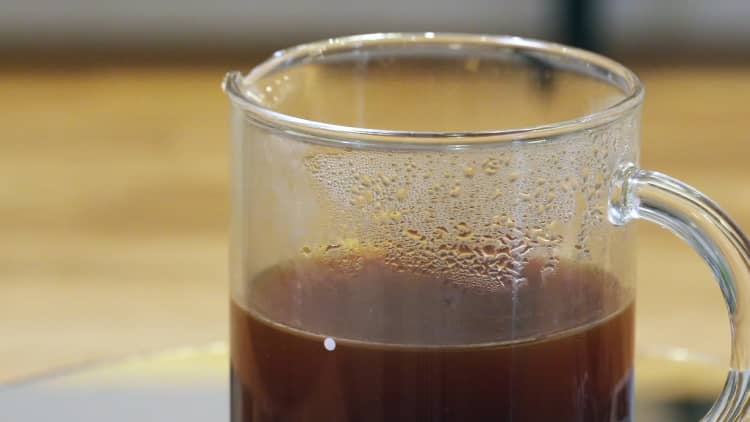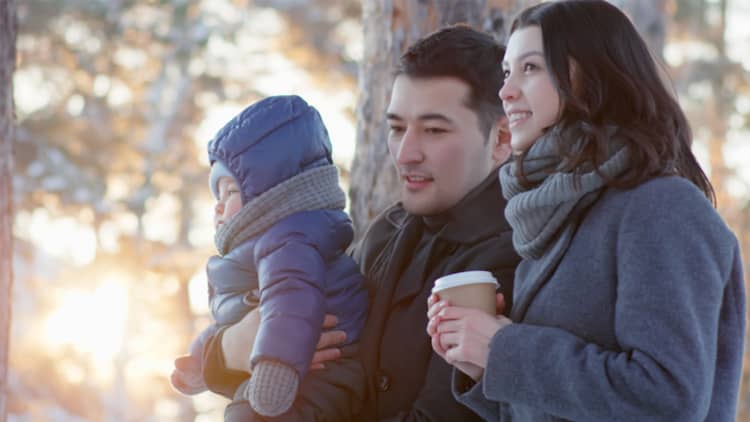If you want to get along better with your coworkers, you might want to grab a cup of coffee before your next meeting. A new study from the University of California, Davis, finds that drinking coffee before group discussions or activities could help you be more sociable, self-confident and engaged.
"Caffeine seems to focus [people's] discussion on the topic, make people participate more than they would without caffeine and leave them feeling better about their own participation and others' participation," lead researcher Vasu Unnava notes.
Unnava, an assistant professor at the UC-Davis Graduate School of Management, and her team compared how coffee drinkers and non-coffee drinkers acted around others when forced to interact. They gathered 133 low-to-moderate moderate coffee drinkers (those who drink no more than four cups a day) who did not have any coffee for at least five hours prior to the study.
One group of participants was asked to first drink a 12-ounce-cup of Starbucks coffee, read about the Occupy Wall Street movement and discuss the topic with a group for 15 minutes. A separate group was asked to complete these activities without drinking coffee.
A self-reported evaluation found coffee drinkers rated their experience talking with others much more positively than non-coffee drinkers.

To assure the causal relationship between drinking coffee and a more positive experience working with others, researchers completed a second experiment with a new batch of participants. They followed the same steps, except everyone was unknowingly given a cup of either caffeinated or decaffeinated coffee.
The results were the same: Caffeinated coffee drinkers enjoyed the group discussion, felt more alert and were more willing to work with the group again for a future discussion, compared to the decaf coffee drinkers.
"Surprisingly, with much coffee consumption occurring in group settings where significant decision making takes place, there has been no research on coffee and its effects on one's performance in group tasks," Unnava says. "Our study fills this gap in the literature."

The study is not without its limitations, Unnava points out. There is a clear link between caffeine, increased alertness and better perceptions of social connection, but it's not clear "whether it is a real increase in alertness that contributed to increased performance or whether it is relief from withdrawal experienced by subjects who had not consumed coffee before they arrived at the experiment location."
In other words, the improvement in your mood and sociability after drinking coffee may just be a sign of your addiction to it. And the researchers point out that "increased caffeine consumption (i.e., more than four cups a day) might actually make a person jittery and inattentive."
Still, Unnava is confident that they have found an "interesting set of findings with respect to how a group performs in a task that requires the exchange of ideas between people when the participants have caffeine in their system vs. not."
Given that coffee is also said to have a number of health benefits, here's how to figure out the best time for you to have your coffee.
Like this story? Like CNBC Make It on Facebook!
Don't miss:


